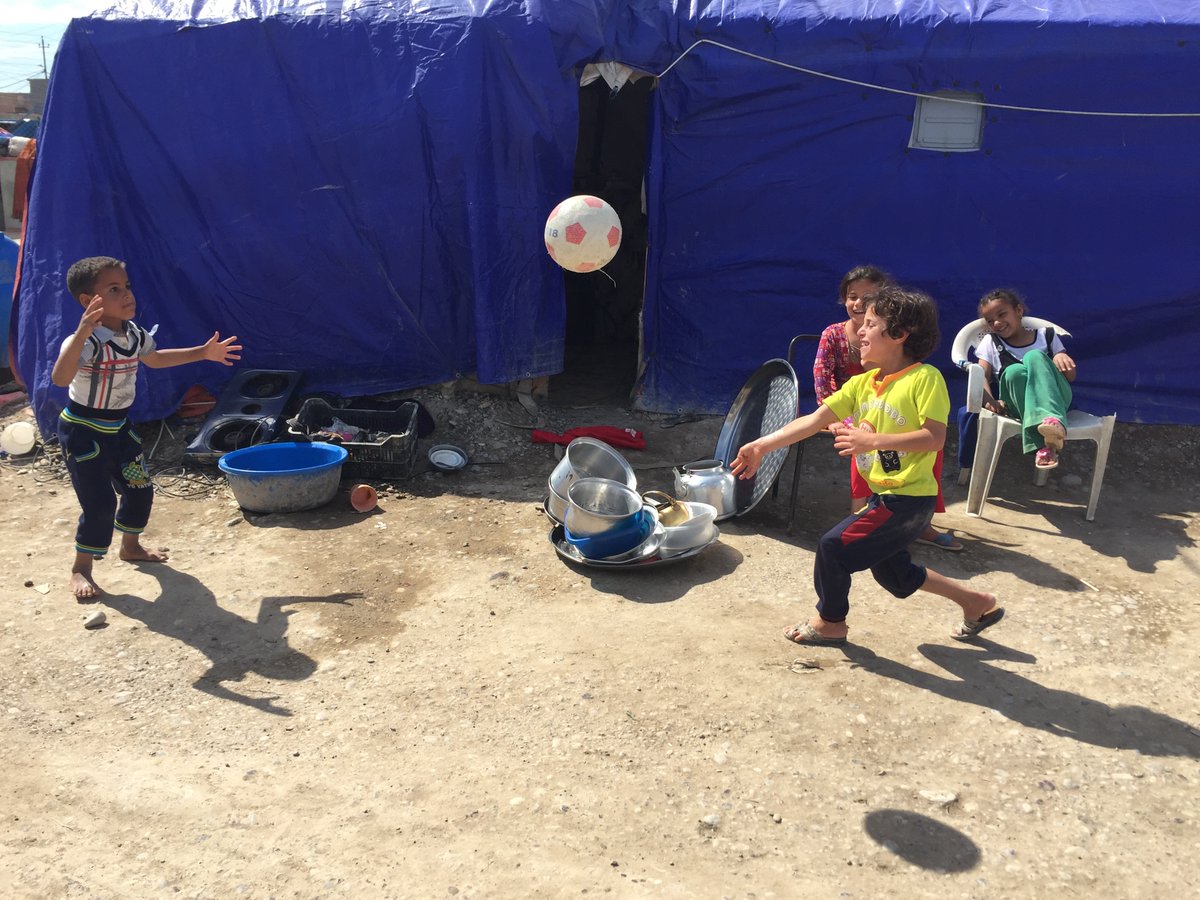
Muscat: Winter aid was provided to more than three million Iraqi and Syrian refugees and internally displaced persons (IDPs), between September 2018 and March 2019, the United Nations High Commissioner for Refugees (UNHCR) has reported
In addition to the two countries, Iraqi and Syrian refugees are also being housed in Lebanon, Jordan and Egypt, with the UNHCR receiving $180 million in funding to help these people as part of their Regional Winterisation Programme.
“As of 31 January 2019, 3.16 million Syrian and Iraqi IDPs and refugees have been reached with assistance, mainly in the form of winter cash payments, shelter materials and winter specific core relief items,” said a UNHCR spokesperson. “In January, UNHCR, through the inter-agency coordination structure, provided emergency assistance to thousands of people affected by the winter storms in Lebanon. UNHCR also continued to provide assistance to families affected by floods in northern Syria. 3.5 million Syrian and Iraqi IDPs and refugees were assessed to be in need of winterisation assistance."
Of these, 2.4 million were Syrian and 700,000 were Iraqi. 70 percent of the winter assistance programme was received in the form of cash directly to IDPs and refugees.
Winterisation provisions are made in three forms: cash assistance for vulnerable families to meet additional needs during the winter months; core relief items such as high thermal blankets, plastic sheets, heaters, gas cylinders and winter clothes and the winterisation of shelter, through providing weather-proofing, repairs, and improvements to drainage systems and other infrastructure in camps and informal settlements.
In Syria alone, almost a million Syrians in need of aid have been helped, as well as a further 22,958 refugees from Iraq.
As of 31 January, UNHCR Syria had provided 843,957 IDPs (168,791 families) with winterization items such as high thermal blankets, solar lamps, extra plastic sheeting, and winter clothes kits in 13 governorates. Supplementary winter items including sleeping bags and winter jackets were also provided to Syrians living in sub-standard shelters.
“Assistance was prioritised for newly displaced vulnerable families including people displaced multiple times, people living in hard-to-reach areas and in sub-standard shelters, spontaneous and self-organised returnees, as well as people in newly accessible locations who have not been assisted in the past. In response to the large-scale displacement and ongoing hostilities in Hajin, Deir-ez-Zor governorate, in north-east Syria, UNHCR is providing assistance to IDPs who are arriving to Al-Hol camp in Al-Hassakeh governorate,” added the UNHCR.
Similar operations were undertaken in Lebanon, Jordan, Iraq and Egypt. In Lebanon, all of the 892,594 Syrian and 9,540 Iraqis were assisted through cash donations, while in Jordan, all 337,334 Syrian and 23,483 of the 23,519 Iraqis were reached. In Iraq, 220,830 of the 228,000 Syrian refugees were helped, while a further 654,192 refugees of the 656,100 Iraqis were also provided assistance. Aid in Egypt went to 82,957 of the 94,400 Syrian refugees and 459 of the 1,200 Iraqi refugees.
In Lebanon, “Under the leadership of the Ministry of Social Affairs, over 60 actors through the inter-agency coordination structure responded to the disaster and provided emergency shelter assistance and CRIs,” said the UNHCR. “As a result of joint efforts from all agencies involved, close to 100 per cent of immediate needs were covered.”
“Cash grants are delivered through a mobile wallet, which is created by the financial service providers when registering identified refugees and IDPs,” said the UNCHR, describing aid systems in Iraq. “Individuals are then able to cash out the grants through certified mobile money agents. In addition to hotlines that have been set up to allow beneficiaries to seek assistance or report any complaints or problems faced in receiving their grants, key messages on the overall programme are delivered by designated cash assistance focal points. Given the scale of assistance, registration for cash assistance and the disbursement of payments are still ongoing.”